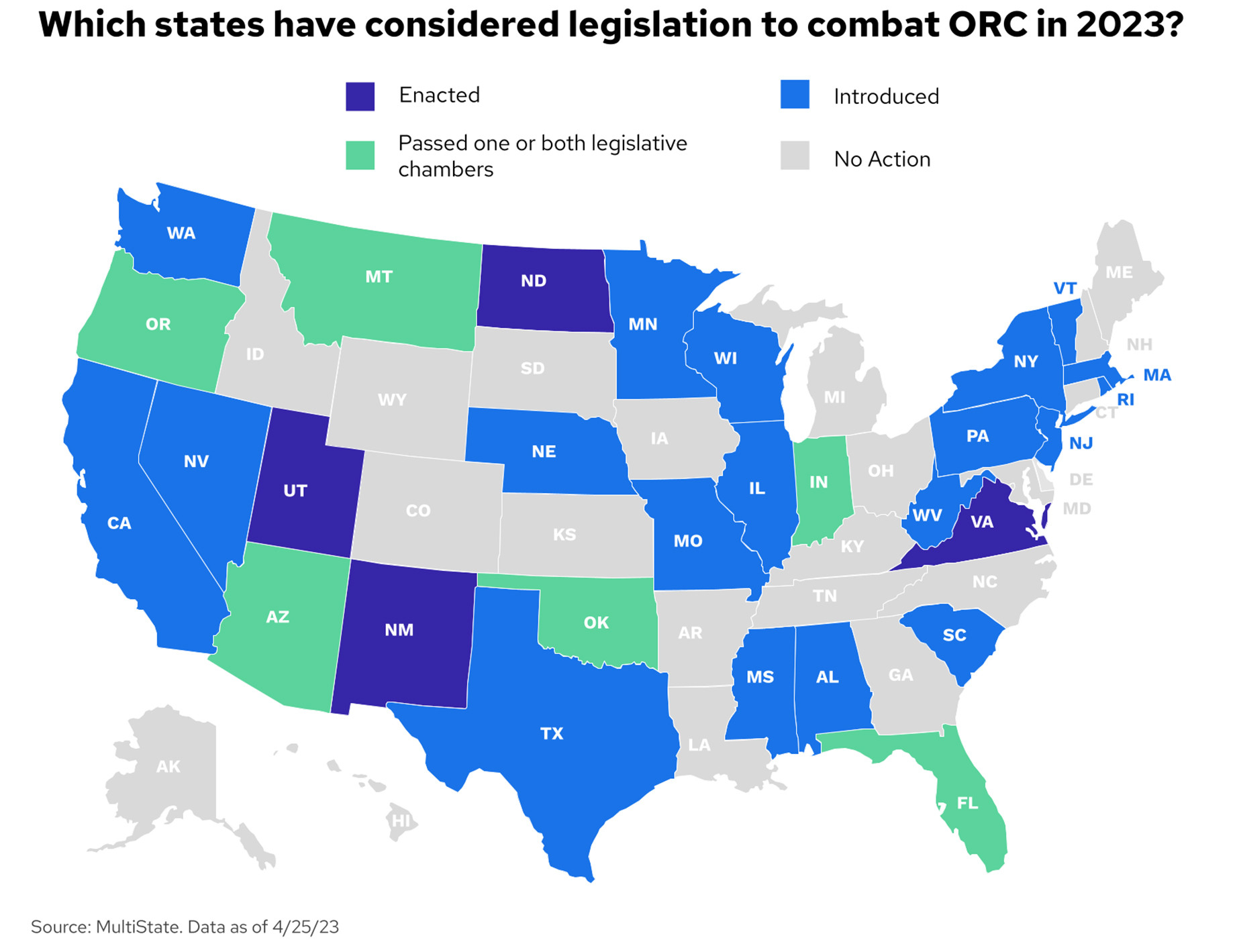Several states have recently scored major legislative wins in the ongoing fight against organized retail crime (ORC).
Earlier this month, legislation in New Mexico (NM HB 234) allowing prosecutors to charge criminals with the total combined value of goods stolen over a 90-day period was signed into law by Governor Michelle Lujan Grisham (D).
Other states have also advanced bills that either increase penalties for perpetrators or allow multiple theft charges to be aggregated into one offense.
Cracking down on retail crime was a major legislative goal for Virginia lawmakers this session. In many jurisdictions, organized crime operations are allowed to skirt maximum enforcement charges by stealing up to a certain dollar threshold at one store. In March, Governor Glenn Youngkin (R) signed legislation (VA HB 1885 & VA SB 1396) that makes organized efforts to steal $5,000 worth of goods within a 90-day period a Class 3 felony.
Enacting tougher sentencing charges has also been a common feature for bills addressing ORC. North Dakota lawmakers enacted legislation (ND HB 1378) that would make organized theft offenses involving five or more individuals a felony with maximum jail time of five years, a fine of $10,000 or both. Similarly, in Utah, Governor Spencer Cox (R) signed legislation (UT HB 46) to increase penalties for retail theft.
Oregon business leaders continue to rally behind legislation (OR SB 340) — developed by the state's ORC Task Force — that would give law enforcement and prosecutors greater flexibility in detecting and deterring those involved in retail theft operations, allow theft charges over 180 days to be aggregated and enact tougher penalties for individuals convicted of organized retail theft.
As in the case with Oregon, ORC Task Forces have played a central role in helping state lawmakers and stakeholders develop comprehensive solutions to stop organized retail theft. This week lawmakers in Oklahoma sent legislation (OK SB 674) to the Governor’s desk that would create a statewide task force to investigate and prosecute suspects involved in ORC. Bills seeking to create ORC Task Forces have also been introduced in New York (NY AB 6568) and Texas (TX HB 1826) this session. To date, eleven states have established a state-funded ORC Task Force.
In total, 29 states this year have introduced or enacted legislation aiming at curbing ORC. A recent study released by the National Retail Federation (NRF) found that 70% of retailers believed the threat of ORC has increased in the last five years, and that criminals are becoming more brazen and violent in their acts.
